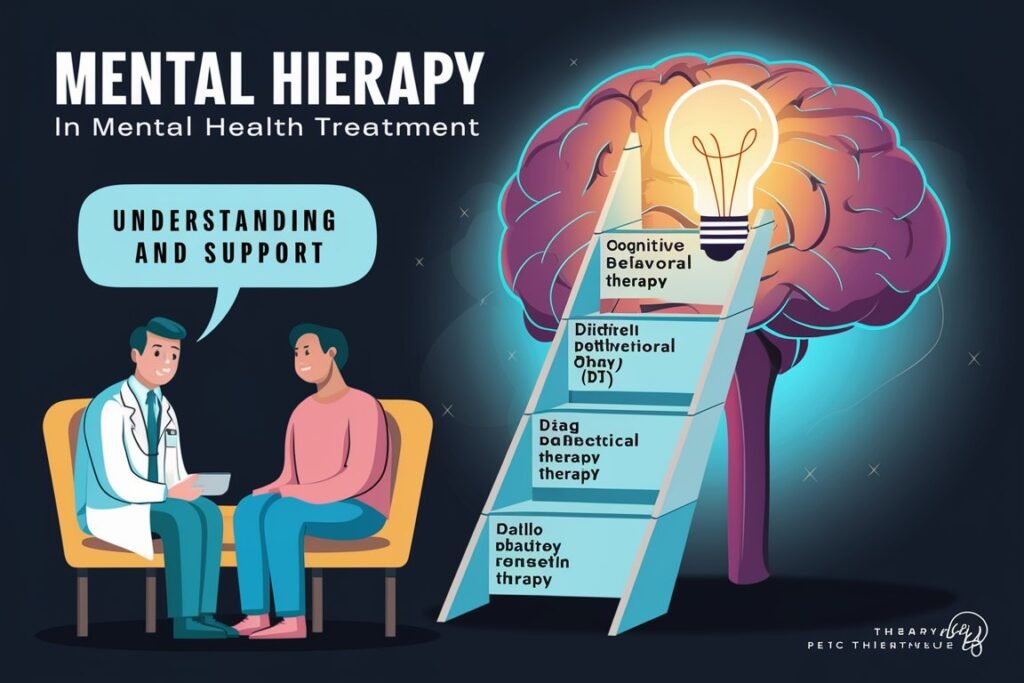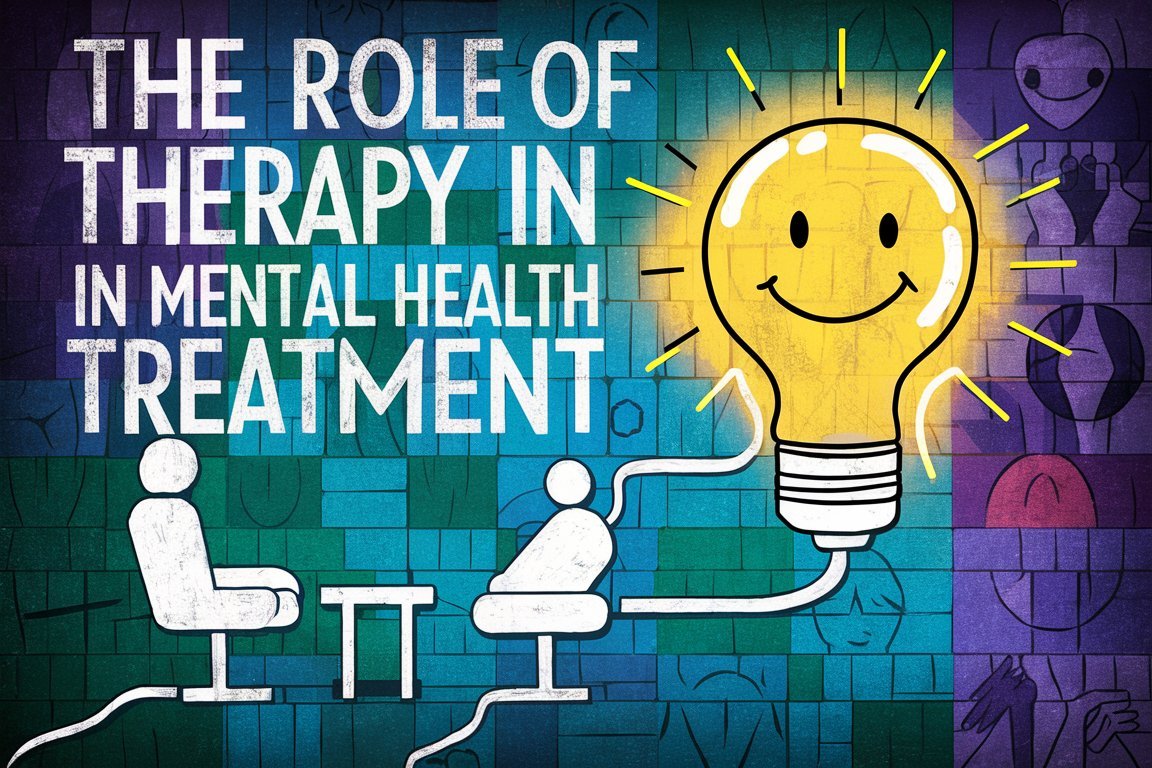The Role of Therapy in Mental Health Treatment
Hey there, young explorers! Today, we’re going to dive into a really important topic – the role of therapy in mental health treatment. Now, I know that might sound a little intimidating or even a bit boring, but trust me – therapy is like a secret superpower that can help us feel better, stronger, and more in control of our lives!
First of all, let me ask you this: have you ever had a problem or a worry that felt too big to handle on your own? Maybe you were feeling really sad or anxious, or you were having trouble getting along with friends or family. Those feelings are totally normal – everyone struggles sometimes!
But here’s the thing: when we’re dealing with big emotions or tough situations, it can be really helpful to have someone to talk to – someone who can listen without judgment, offer support and guidance, and help us find new ways to cope. That’s where therapy comes in!
What is Therapy?
Therapy is basically a fancy word for talking to a trained professional about your thoughts, feelings, and experiences. It’s a safe, confidential space where you can express yourself freely and work through whatever’s on your mind.
There are lots of different types of therapy, but they all have the same basic goal: to help you understand yourself better, develop healthy coping skills, and improve your overall well-being.
Some common types of therapy include:
- Cognitive-behavioral therapy (CBT): This type of therapy focuses on how your thoughts, feelings, and behaviors are all connected. It helps you identify negative or unhelpful thought patterns and replace them with more positive, realistic ones.
- Play therapy: This type of therapy uses toys, games, and other fun activities to help kids express themselves and work through their feelings in a way that feels natural and comfortable.
- Family therapy: This type of therapy involves meeting with the whole family to improve communication, resolve conflicts, and strengthen relationships.
- Art therapy: This type of therapy uses creative activities like drawing, painting, or sculpting to help people express themselves and process their emotions in a non-verbal way.
No matter what type of therapy you choose, the most important thing is finding a therapist who you feel comfortable with and who understands your unique needs and goals.
Why is Therapy Important for Mental Health?
Mental health is all about our emotional, psychological, and social well-being. It affects how we think, feel, and act, and it’s just as important as physical health.
When we’re struggling with mental health issues like anxiety, depression, or trauma, it can be really hard to cope on our own. We might feel stuck, overwhelmed, or like we’re not good enough.
But here’s the thing: mental health issues are nothing to be ashamed of – they’re a normal part of life, and they’re not your fault. Just like we go to the doctor when we have a physical illness, it’s important to seek help when we’re struggling with our mental health.
That’s where therapy comes in. Therapy can help us:
- Understand our thoughts, feelings, and behaviors better
- Learn new coping skills and strategies for managing stress and difficult emotions
- Improve our relationships and communication skills
- Boost our self-esteem and confidence
- Work through past traumas or experiences that are holding us back
- Set goals and work towards a happier, healthier future
In short, therapy is like a powerful tool that can help us build resilience, overcome challenges, and live our best lives.
How Does Therapy Work?

Okay, so now that we know what therapy is and why it’s important, let’s talk about how it actually works.
Typically, therapy involves meeting with a therapist on a regular basis – usually once a week or every other week. During these sessions, you’ll have the opportunity to talk about whatever’s on your mind – your thoughts, feelings, experiences, and goals.
Your therapist will listen actively and ask questions to help you explore your thoughts and feelings more deeply. They might also teach you new coping skills or strategies, like deep breathing, progressive muscle relaxation, or positive self-talk.
The goal of therapy is not to “fix” you or tell you what to do – it’s to empower you to understand yourself better, make positive changes in your life, and build the resilience and confidence you need to thrive.
What to Expect in Therapy
If you’re thinking about starting therapy, you might be feeling a little nervous or unsure about what to expect. That’s totally normal – therapy can feel a little weird or uncomfortable at first, especially if you’re not used to talking about your feelings.
But here are a few things to keep in mind:
- Therapy is a safe, confidential space. Your therapist is bound by strict ethical guidelines to keep your information private and secure.
- Your therapist is there to support you, not judge you. They’re not going to think less of you or criticize you for sharing your thoughts and feelings.
- Therapy is a collaborative process. Your therapist is there to guide and support you, but ultimately, you’re in charge of your own growth and healing.
- Therapy can be challenging at times. You might feel uncomfortable or emotional as you work through tough issues or experiences. But that discomfort is often a sign that you’re making progress and growing stronger.
- Therapy is not a quick fix. It takes time, effort, and commitment to see real, lasting changes in your life. But with patience and persistence, therapy can be an incredibly powerful tool for improving your mental health and well-being.
Finding the Right Therapist
One of the most important factors in successful therapy is finding a therapist who you feel comfortable with and who understands your unique needs and goals.
Here are a few tips for finding the right therapist:
- Ask for recommendations from people you trust, like friends, family members, or your doctor.
- Look for a therapist who specializes in the issues you’re struggling with, like anxiety, depression, or trauma.
- Check your insurance coverage to see if therapy is covered and if there are any in-network providers in your area.
- Don’t be afraid to shop around and meet with a few different therapists before making a decision. It’s important to find someone who you feel safe and comfortable with.
- Trust your gut. If something doesn’t feel right or you’re not making progress after a few sessions, it’s okay to try a different therapist or approach.
Remember, finding the right therapist is like finding a good pair of shoes – it might take some trial and error, but when you find the right fit, it can make all the difference in your journey towards better mental health.
The Benefits of Therapy
So, what can you expect to gain from therapy? The benefits of therapy are as unique and varied as the people who seek it out, but here are a few common outcomes:
- Improved self-awareness and self-understanding
- Stronger coping skills and resilience in the face of stress and challenges
- Better communication and relationship skills
- Increased self-esteem and confidence
- Relief from symptoms of anxiety, depression, or other mental health issues
- Greater sense of purpose and meaning in life
- Improved overall well-being and quality of life
Of course, these benefits don’t happen overnight – therapy is a process, and it takes time and effort to see real, lasting changes. But with commitment and patience, therapy can be an incredibly powerful tool for improving your mental health and living your best life.
Breaking the Stigma
Despite the many benefits of therapy, there’s still a lot of stigma and misconceptions surrounding mental health treatment. Some people might feel embarrassed or ashamed to seek help, or worry that it means they’re “crazy” or “weak.”
But here’s the thing: seeking help for your mental health is a sign of strength, not weakness. It takes courage and self-awareness to recognize when you’re struggling and to reach out for support.
And remember, mental health issues are nothing to be ashamed of – they’re a normal part of life, and they can happen to anyone, regardless of age, gender, or background.
By breaking the stigma surrounding mental health treatment and normalizing therapy as a valuable tool for well-being, we can create a more supportive, compassionate world where everyone feels empowered to seek the help they need to thrive.
Putting It All Together
Phew, that was a lot of information! But I hope you’re feeling more informed and empowered to consider therapy as a valuable tool for improving your mental health and well-being.
Remember, therapy is not a sign of weakness – it’s a sign of strength and self-awareness. It’s a safe, confidential space where you can work through tough issues, learn new coping skills, and build the resilience and confidence you need to thrive.
If you’re struggling with your mental health, don’t be afraid to reach out for help. Talk to a trusted adult, like a parent, teacher, or school counselor, and ask for their support in finding a therapist who can help you on your journey towards healing and growth.
And most importantly, remember that you are not alone. Mental health struggles are a normal part of life, and there is no shame in seeking help when you need it. With the right support and tools, you can overcome any obstacle and live your best, most authentic life.













Leave a Reply